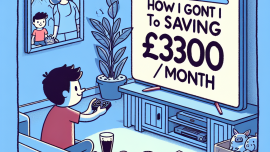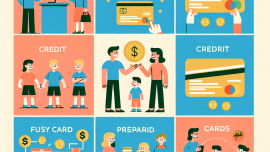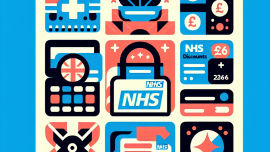
How to Talk About Money With Your Partner Without It Getting Weird
How to Create a Budget That Actually Works (And Doesn’t Make You Cry)
Let’s face it—just saying the word “budget” out loud has the same effect as yelling “vegetables” to a room full of toddlers. But stick with me. I’m Tom, your friendly neighborhood finance coach, and I promise we’re going to talk budgets without dozing off mid-sentence. In fact, we’re going to build a budget that you ACTUALLY want to stick to. No guilt trips, no spreadsheets from financial hell—just good, simple, human strategies that even your dog could understand (although I don’t suggest giving him a credit card).
Why Most Budgets Fail (Spoiler: It’s Not Just You)
Before we dive into my foolproof budget recipe, let’s talk about why most budgets end up abandoned faster than a gym membership in February:
- They’re too strict: Cutting out your daily latte might sound noble, but if caffeine is your lifeline, you’ll rebel. Hard.
- They ignore real life: People forget about birthdays, emergencies, or that you just really love tacos every Tuesday.
- They’re not tracked consistently: If you set and forget your budget, it’s about as useful as a chocolate teapot.
Sound familiar? That’s okay. You’re not broken. The budgeting method is. Let’s fix that.
The Zero-Based Budget: Your Financial BFF
The budgeting method I swear by is called Zero-Based Budgeting. Don’t worry—it’s not calculus. It just means that every dollar you earn has a job to do. If you bring in $3,000, you assign all $3,000 to expenses, saving, investing, and, yes, even fun money.
This method keeps your cash accountable without making you feel like Big Brother is watching. Think of it as Marie Kondo for your bank account—everything has purpose and place.
Step 1: Know Thy Income
Let’s start simple: what money is coming in each month? We’re talking after-tax income:
- Your 9-to-5 paycheck
- Side hustle earnings
- Freelance gigs
- Any recurring sources of cash (yes, even grandma’s birthday money if that’s consistent!)
Write down that total. That’s your “pot” to pull from. Let’s say it’s $3,000 for example purposes.
Step 2: Track Your Expenses Like a Detective
Now we Sherlock our way through your current spending habits. Don’t judge yourself—this isn’t court. But we do need to be honest. Break expenses down into categories:
- Fixed costs: Rent, utilities, phone bill, subscriptions you can’t live without (looking at you, Netflix).
- Variable essentials: Groceries, gas, pet food. Stuff you need, but costs may vary.
- Non-essentials: Clothing, entertainment, restaurants, that therapy candle you don’t light, just sniff.
If you’ve never tracked this before, go back through 2-3 months of transactions. You’ll be shocked where your money vanishes (spoiler: it’s always smoothies and online deals).
Step 3: Set Your Financial Goals (Yes, Even Small Ones)
If you’re reading this thinking “But Tom, I’m just trying not to overdraft this week,” I hear you. But small goals build momentum. Try stuff like:
- Pay off $100 of a credit card this month
- Save $200 into a rainy-day fund
- Put $50 into a vacation jar, even if the vacation is a hammock in your backyard
Your budget should reflect what matters to YOU, not what some fancy money coach on TikTok tells you matters.
Step 4: Give Every Dollar a Job
This is where zero-based magic happens. You take your total income ($3,000, in our example), and assign every dollar into categories:
- Rent: $1,000
- Utilities & bills: $300
- Groceries: $400
- Transportation: $150
- Savings: $300
- Credit card payment: $200
- Entertainment/fun: $250
- Subscriptions: $100
- Leftover $300? Great! Put it into goals, cushion, or treat yourself
Every single dollar gets assigned somewhere, so nothing just ‘hangs out’ in your bank account waiting to be impulse-spent at 2am on Amazon.
Step 5: Track Weekly, Not Monthly
This is key. You wouldn’t brush your teeth once a month and expect fresh breath, right? (I hope not.) Your budget works the same way. Take 15 minutes once a week—set a reminder, light a candle, play some jazz, whatever sets the mood.
Update your totals, shift categories if needed, and notice trends without judging yourself. Budgeting is a skill, not a punishment.
Budgeting Hacks from Uncle Tom’s Toolbox
Need a few quick wins? I got you.
- Use Cash Envelopes: For categories like eating out or entertainment, use physical cash envelopes. When the money’s gone, so is Taco Tuesday.
- Automate Savings: Set up automatic transfers the moment you get paid. You can’t miss what you never see.
- Use “No-Spend” Days: Designate one or two days a week where you spend absolutely nothing. Make it a game. You’d be surprised how freeing it is.
- Budget for Fun: I can’t stress this enough. If you don’t allow space for joy, you’ll ditch your budget faster than a bad Tinder date.
Common Budgeting Myths (Busted with a Smile)
Let’s debunk some myths while we’re at it:
- “I don’t make enough to budget.” Nah. You budget *because* you don’t make enough. That’s the whole point—making your money work harder.
- “Budgeting is for old people.” Wrong again. Budgeting is for anyone who doesn’t want their card declined buying gum.
- “I’ll start when I earn more.” Money habits start now. You’ll still overspend later if you don’t build the muscles today.
You’re the Boss of Your Budget
Look, building a budget that “actually works” isn’t about restricting your life—it’s about designing your financial freedom on your terms. That freedom starts with awareness and a little weekly self-care check-in with your money.
I’m not promising you’ll love budgeting overnight, but I guarantee you’ll love how it makes you feel when you stick with it for a month or two. Confident. Calm. In control. Like the financial superhero you always wanted to be—cape optional, spreadsheets optional-er.
Need help along the way? We’ve got resources, tools, and templates coming soon right here on Financeone. Dive into more beginner guides, or feel free to reach out if budgeting still feels like alien math from Mars. Trust me, I’ve been there. Now I live here — in Earth Budget Land — and it’s not so bad.
And hey, if budgeting success only means you’re not crying at the ATM anymore? I call that a win.









Leave a Reply